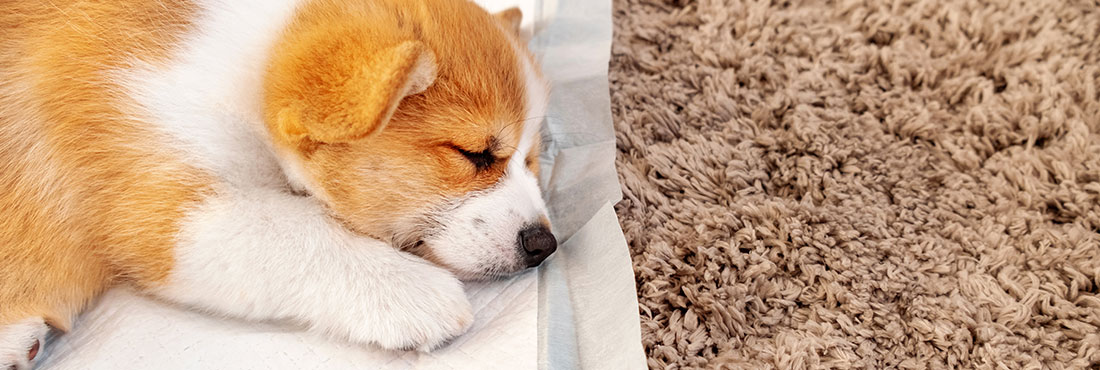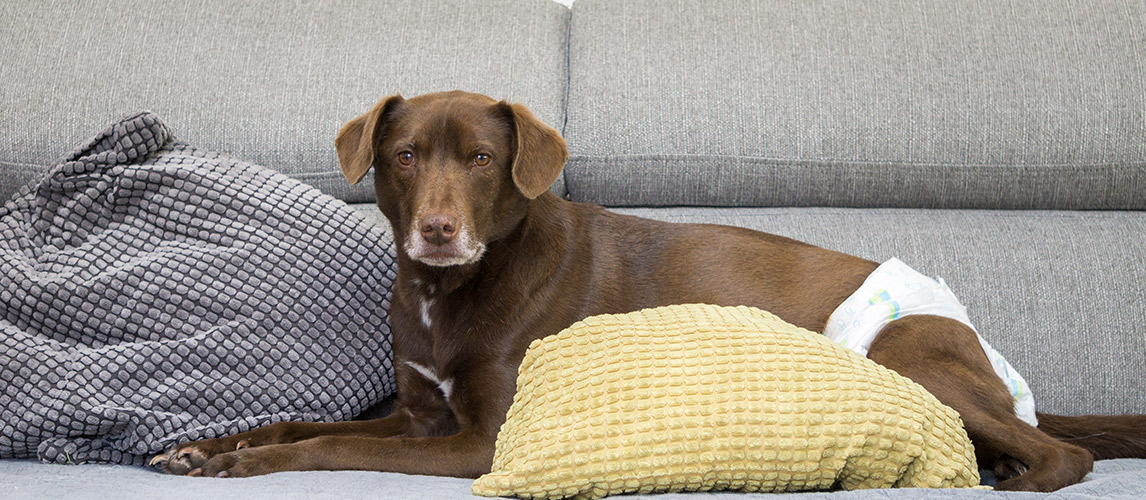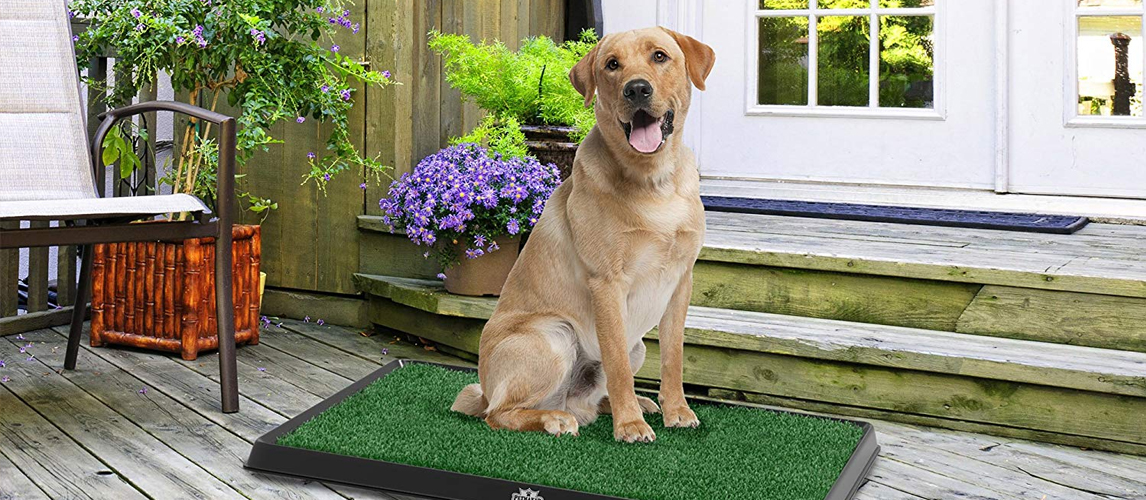Just like their owners, dogs need to use the bathroom every few hours and when you imagine what it’s like holding your pee for too long, you would understand what these furry fellows have to go through each time they are made to hold it in. Besides, enduring the urge to pee for too long is unhealthy for dogs as much as it is for humans. Dog owners should know things like how often should a dog urinate and other things in-between. This will not only stop your dog from messing up your home, you will also be in a better position to know if your dog is in good health, depending on how many times they pee in a day. Also, those who travel long distances with their dogs should know how long their pets can hold their pee for obvious reasons.
Whether you are a new dog owner or have lived with pets for years, this article will enlighten you by answering questions like how often do dogs need to pee? How often should a dog urinate? How long can dogs hold their pee?
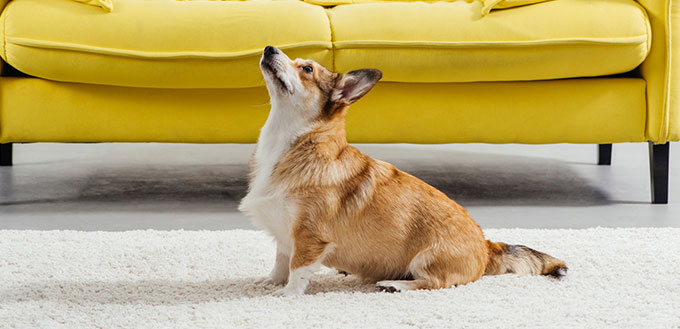
How Often Do Dogs Need to Pee?
Dogs are mammals too and need to pee every once in a while, but unlike humans, they can hold it in for hours. For the most part, taking your dog outside at least 3 to 5 times in a day should be enough to give them the chance to ease themselves. Asides from that, adult dogs should be taken outside about 6-8 hours after the last trip, according to veterinarians. This points to the fact that there are underlying factors to be considered if you are pondering on the question of how long can dogs hold their pee?
Check out our article on Indoor Potty for Dogs.
Factors That Affect Your Dog’s Peeing Habits
Age, breed of the pet, size, diet, activity level, as well some psychological factors may affect the frequency of urinating in your dog. Much like humans, puppies tend to pee more often because they have smaller bladder and perhaps eat and drink more often. On the other hand, healthy adult dogs can hold it for much longer but if they get old, this might change. Older dogs have the tendency to pee more frequently as a result of certain health conditions that are common with the aging process. Also, at this point, their body would be weak from all the years of activity and this might cause their organs to be slow.
Additionally, the breed of your dog which often determines the physical activity might also be a deciding factor on how often they need to pee. An English Bulldog that doesn’t get much exercise might pee more often than a Schipperke who is always active. Again, large breeds have been found to lack the ability to hold urine for long even though they look like they should have big bladders. Additionally, tiny dogs also share this feature. What’s more, the level of hydration also plays a role here because as a human, when you drink a lot of water, you tend to use the bathroom often and so does your dog.
Other health problems that might trigger frequent urinating in dogs include diabetes, tumor, hormonal disorders, electrolyte imbalance, excessive steroid hormones, polyuria and pollakiuria, among others.
Also, sudden excitement or fear caused by something that happened around them might trigger the need to pee. Again, what you feed your dog, including drinks and medicine, may affect the rate at which they urinate and obesity can also be a triggering factor.
How Long Can Dogs Hold Their Pee?
While the recommended period is within 6 to 8 hours, unforeseen circumstances can make you not to release your dog to take a leak on time. However, there is a certain limit to how long they can hold it in. Most dogs can go for up to 10-15 hours before they must go. Certainly, some breeds or trained dogs can go longer than that but then; making your dog hold urine for long and on a frequent basis, might be detrimental to its health. As a mammal, not peeing at the right time might lead to kidney or bladder problems if the habit continues for a long time.
When your dog has developed these health issues as a result of urinary tract diseases, the number of times it needs to pee will increase. For what it’s worth, even if you think yourself lucky because your dog is able to go for hours without peeing, know that they are not comfortable with it and it might cause them a lot of health hazards.
Also, for trained dogs, messing up your home may not be an option because they were taught to be good, thus, they hold their urine much longer. And while some trained dogs will ask to go outside when they need to pee, the truth is that they might have been holding it in for some time. This makes it your duty as the owner to know when to take them to answer nature’s call.
All in all, treat your dog the way you treat yourself when it comes to urinating. If you abuse its ability to hold urine for hours, you will soon have a sick dog to take care of.
Related Post: Carpet Cleaners for Dog Urine
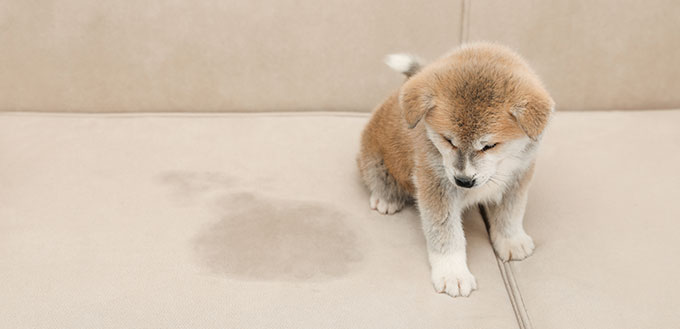
When to Seek Medical Help
Have you noticed that your dog urinates more these days? Before you get your britches in a bunch, know that this might be normal for your dog. Nevertheless, there are signs that should not be ignored, especially when it affects the total well-being of the dog.
When your dog is showing signs of discomfort or pain while peeing, there is the possibility of a deadly disease in its body and a visit to the vet is recommended. Again, if the urine has odd colors like red or darker hue, it might be a symptom to look out for.
Naturally, when the number of times your dog urinates increases drastically, there may be trouble looming. Seek medical help. Generally, pay attention to your pet and try to understand the message his movements are trying to relay.
More Pet Product Reviews
Dog Hair Brooms
Heated Dog Beds
Wheelchairs For Dogs
Dog Gates
Dog Poop Bags
Raised Dog Bowls
Pee Pads for Dogs
Dog Stairs for Bed
Washable Dog Beds
Orthopedic Dog Beds
Source:
- Urinary Incontinence, Washington State University
Note: The advice provided in this post is intended for informational purposes and does not constitute medical advice regarding pets. For an accurate diagnosis of your pet's condition, please make an appointment with your vet.


